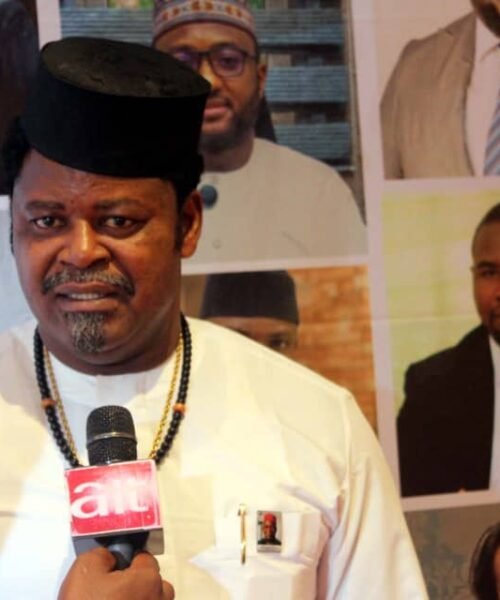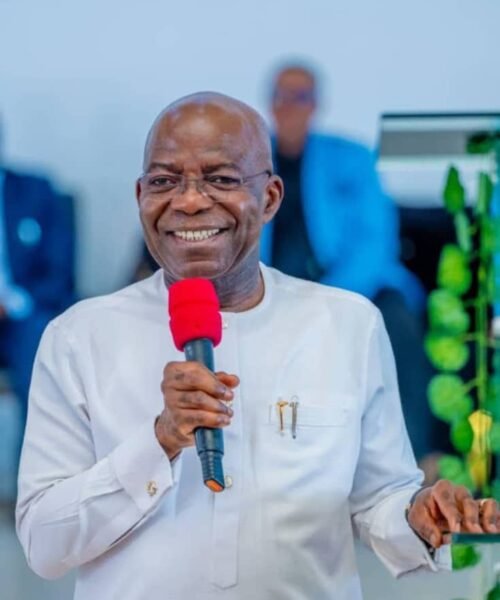Technology and Innovation in Nigeria: A Deep Dive into Abia State Governor’s Strategic Objectives
Introduction
Nigeria, Africa’s most populous nation, is at a critical juncture in its technological and innovative development. With a population of over 220 million people, Nigeria has the potential to become a global leader in technology and innovation. However, the country faces significant challenges, including low internet penetration, limited smartphone usage, and inadequate investment in research and development (R&D). This article provides an in-depth analysis of the current state of technology and innovation in Nigeria, with a particular focus on Abia State. It also offers strategic recommendations for the Governor of Abia State to deepen technology penetration before February 2026.
Global Context: Technology and Innovation
Globally, technology and innovation are driving economic growth and societal transformation. According to the International Telecommunication Union (ITU), global internet penetration reached 66% in 2023, with over 5.3 billion people using the internet. Smartphone usage is also on the rise, with Statista reporting that there were 6.8 billion smartphone users worldwide in 2023, representing 85% of the global population. The artificial intelligence (AI) market is expanding rapidly, with Grand View Research estimating its size at $136.6 billion in 2022, projected to grow at a compound annual growth rate (CAGR) of 37.3% from 2023 to 2030. Global R&D spending reached $2.4 trillion in 2022, with countries like the United States, China, and Japan leading the way. These global trends underscore the importance of technology and innovation as key drivers of progress, and Nigeria must position itself to benefit from these advancements.
Nigeria: Current State of Technology and Innovation
In Nigeria, the technology and innovation landscape is evolving but remains underdeveloped compared to global standards. According to the Nigerian Communications Commission (NCC), internet penetration in Nigeria stood at 55% in 2023, with approximately 122 million internet users. Smartphone penetration is lower, at around 40%, with many Nigerians still relying on feature phones. The AI market in Nigeria is in its infancy, but there is growing interest in AI applications across various sectors, including healthcare, agriculture, and finance. R&D spending in Nigeria is woefully inadequate, with the country allocating less than 0.2% of its GDP to R&D, far below the African Union’s recommended target of 1%. These statistics highlight the urgent need for Nigeria to invest more in technology and innovation to remain competitive in the
Abia State: A Microcosm of Nigeria’s Technological Challenges and Opportunities
Abia State, located in southeastern Nigeria, is a microcosm of the broader challenges and opportunities in Nigeria’s technology and innovation landscape. With a population of approximately 3.7 million people, Abia State has a relatively low internet penetration rate of 45%, below the national average. Smartphone usage is also limited, with only 35% of the population owning a smartphone. The state has a burgeoning tech ecosystem, with several startups and innovation hubs, but these are underfunded and lack the necessary infrastructure to thrive. Despite these challenges, Abia State has a strong entrepreneurial spirit and a growing youth population, which presents a unique opportunity to leverage technology for economic transformation.
Why is Governor Otti Aggressively Targeting 2026
Governor Alex Otti’s target of February 2026 for deepening technology penetration in Abia State is both ambitious and achievable. This timeline aligns with the global push for digital transformation and provides a clear framework for measurable progress. By 2026, the global AI market is expected to grow exponentially, and internet penetration worldwide will likely exceed 70%. Otti believes that Targeting 2026 allows Abia State to position itself as a regional leader in technology and innovation, attracting investments and partnerships. Additionally, this timeline coincides with the Governor Otti’s first term broad strategies, providing an opportunity to showcase tangible achievements in technology and innovation as part of his administration’s legacy. Its a focused, time-bound approach that also creates a sense of urgency and accountability, ensuring that stakeholders work diligently to meet the set goals.
Strategic moves of the Governor
To deepen technology penetration in Abia State before February 2026, the Governor has strategically operationalized the following:
1. Enhanced Internet Infrastructure
He’s finalized collaboration with private sector players to expand broadband infrastructure across the state. This could involve incentivizing telecom companies to invest in rural areas where internet penetration is particularly low. Additionally, implement a state-wide Wi-Fi initiative, providing free or subsidized internet access in public spaces such as schools, hospitals, and government offices. Improved internet infrastructure will serve as the backbone for all other technological advancements.
2. Abia Smartphone Adoption – ASA project
He’s currently scouting for companies that will launch programs to provide affordable smartphones to low-income households. This could be done in partnership with mobile manufacturers and telecom operators. Complement this with digital literacy campaigns to educate the population on the benefits of smartphone usage and how to access online services. Increased smartphone adoption will enable more people to participate in the digital economy. Otti is bent on driving through this mass adaptive initiatives
3. Foster AI and Innovation
There are three firms jostling for prime spot to establish an AI research and development hub in Abia State, focusing on AI applications in agriculture, healthcare, and education. This hub, Otti believes must collaborate with Abia State University, Abia State Research institutions, and Abia State domiciled tech companies. Additionally, he wants them to provide grants and funding to local startups and innovators working on AI and other cutting-edge technologies. In one of the meetings, he said emphatically that, “fostering AI and innovation will position Abia State as a leader in emerging technologies”.
4. Increase R&D Spending
Otti has directed his aides to facilitate the creation of a private sector led, dedicated R&D fund, partners must commit to allocating a significant portion of their budget to support research and innovation projects. He has promised that Abia state will work closely with the federal government to access national R&D funds and programs, ensuring that Abia State benefits from national initiatives. In his words and I quote, increased R&D spending will drive innovation and create a culture of research and development in the state.
5. Strengthen the Tech Ecosystem
He has set up a special team to formalize ways to establish more tech incubation centers across the state as the multiplier begins to kick in, to support startups and entrepreneurs. These centers will provide access to mentorship, funding, and workspace. Additionally, Dr Otti has mandated the compulsory integration of technology education into the school curriculum, ensuring that students are equipped with the skills needed for the digital economy. A strong tech ecosystem will attract talent and investment to Abia State, he says.
6. Policy and Regulatory Support
As we write, Otti has received a robust policy framework that support the growth of the tech sector, including tax incentives for tech companies and streamlined regulations for startups. The Policy and regulatory support will create an enabling environment for technology and he innovation to thrive.
Conclusion
Abia State has the potential to become a leading hub for technology and innovation in Nigeria. However, achieving this goal will require concerted efforts from the citizens and private alike to compliment what the state government, and other stakeholders are doing. By enhancing internet infrastructure, promoting smartphone adoption, fostering AI and innovation, increasing R&D spending, strengthening the tech ecosystem, and implementing tech-friendly policies, the Governor of Abia State can significantly deepen technology penetration by February 2026. This will not only drive economic growth but also improve the quality of life for the people of Abia State, positioning the state as a model for technological advancement in Nigeria.

Dr Chukwuemeka Ifegwu Eke writes from the University of Abuja Nigeria







